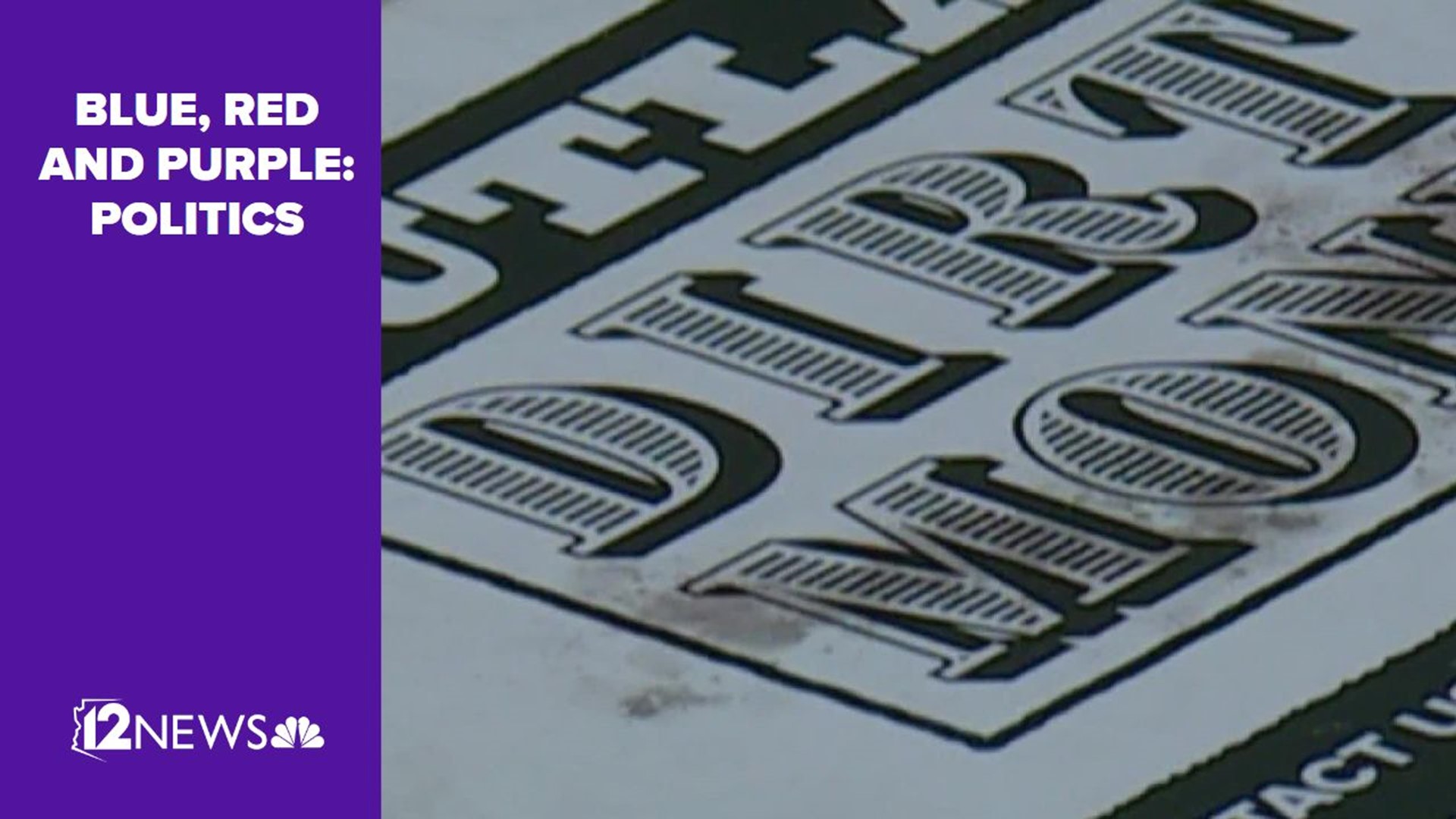PHOENIX — >>Editor's Note: The above video is from a previously aired broadcast.
This year, voters had ten propositions on the ballots that they could vote into law.
Proposition 211, which aimed to shine a light on the dark money being contributed to political campaigns, appears to be on its way to passing with overwhelming support as of Wednesday evening.
So-called dark money is political spending by anonymous sources in Arizona through organizations and nonprofit corporations.
Under Arizona's current laws, campaign contributions can stay anonymous, allowing large amounts of money to be used for influencing elections.
According to the ASU Morrison Institute, Arizona law requires citizens’ individual contributions to a candidate’s campaign must be capped. Their names and addresses must be disclosed publicly. But those same donors, along with corporations, business associations, and unions, can donate unlimited amounts of money anonymously through a complex network of organizations, including many nonprofit corporations.
Candidates who violate that requirement could face harsh penalties.
According to the proposed law, “entities and persons” that spend more than $50,000 on statewide campaigns or $25,000 on other campaigns are required to identify donors who contribute a total of more than $5,000.
Two groups, the Arizona Free Enterprise Club and Center for Arizona Policy Action, officially opposed the measure and argued it would expose donors to bullying tactics and silence free speech.
It's an undertaking years in the making as the bi-partisan Stop Dark Money coalition has pushed to get this proposition on the ballot.
"Arizona wants transparency. They wanted it for a long time. The challenge was getting on the ballot," said Outlier CEO and Founder David Tedesco, who serves as co-chair of the coalition. "Once we were there, we proved that they overwhelmingly favor it. Almost 75%, three-in-four people."
Former Democratic Attorney General Terry Goddard said that the change has been a long time coming, and it's a change that was entirely driven by the people of Arizona.
"Let me just emphasize that this is a homegrown product of support where Arizona has the financing behind it. We operate it on something of a shoestring, but we got it done," Goddard explained. "The folks behind it were Arizona citizens, Arizona businesses. And I think that's important."
The law will take effect once the election is certified by the governor and secretary of state. From there, candidates and campaigns will have two years to adjust as the changes are implemented for the next election cycle.
Tedesco and Goddard hope it will make us a model for other states.
RELATED: Arizona 2022 election updates: Maricopa County officials give updates on status of election
RELATED: Ballot proposition 209 was approved: Here's what that means for Arizonans dealing with medical debt
RELATED: Arizona election results: Ballot propositions 209, 211 pass; 128 Legislature initiative rejected
Decision 2022
Arizonans will go to the polls this November for the midterm elections. Here's everything you need to know leading up to election night.

